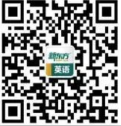内容简介
听众 Riley 想知道形容词 “affluent、rich” 和 “wealthy” 之间的差别。它们都有 “拥有大量金钱” 的意思,但用法不同。其中,哪个词相对更正式?哪个词强调 “拥有大量的财产或贵重物品”?怎么用 “rich” 指 “(食物)富含…”?本期节目讲解这三个近义词的用法。
欢迎你加入并和我们一起讨论英语学习的方方面面。请通过微博 “BBC英语教学” 或邮件与我们取得联系。我们的邮箱地址是 questions.chinaelt@bbc.co.uk
文字稿
(关于台词的备注: 请注意这不是广播节目的逐字稿件。本文稿可能没有体现录制、编辑过程中对节目做出的改变。)
Jiaying
Hello! This is Question and Answer of the Week. I'm Jiaying.
Sam
And I'm Sam. Welcome!
Jiaying
本期节目的问题来自 Riley,问题是这样的:
Question
你好,想知道关于 “affluent、rich” 和 “wealthy” 的差别。它们都有 “富有的” 意思,但具体差在哪?
Sam
Thank you for your very interesting question, Riley. When they are adjectives, they all simply mean 'having a lot of money or things' but there is a slight difference between how we use them.
Jiaying
是的。先来看三个词的正式程度:一般来说,“affluent” 在三个词中算是较为正式的,所以在日常交流中并不常用;形容词 “wealthy” 的正式程度居中;而形容词 “rich” 是最通俗的,也是最常用的一个。
Sam
But Riley asked for a detailed answer, so let's look at each word more closely now, starting with 'affluent'.
Jiaying
“Affluent” 的意思是 “富有的”。它可以用来谈论单个的人,但它特别用来指一组人,如一个国家、一个地区、一个社区的居民是 “富有的”。比如:“an affluent neighbourhood(一个富裕的社区)”。
Sam
Let's hear some examples now, and notice the nouns that 'affluent' is describing in each sentence.
Jiaying
请听三个例句。注意听例句中 “affluent” 修饰的名词。
Examples
My aunt and uncle just moved to a very affluent neighbourhood – there are lots of big houses with fountains.
(我的姑姑和姑父刚搬到一个非常富裕的社区,那里有很多装了喷泉的大房子。)
Education levels tend to be higher in more affluent countries.
(富裕国家的教育水平往往更高。)
This used to be a very affluent area, but it's changed in the past few years.
(这里曾是一个非常富裕的地区,但在过去几年发生了变化。)
Sam
So, you will often hear 'affluent' used with nouns like 'nation', 'country', 'society', 'area' or 'neighbourhood'. And because it's a little more formal, we tend to see this word more in newspapers or academic writing.
Jiaying
没错,由于形容词 “affluent” 和其它两个词相比更正式,所以更常出现在报刊文章或学术写作中。
接着,来看形容词 “wealthy”。“Wealthy” 同样有 “富有的” 意思,但它强调 “拥有大量的财产或贵重物品”。
Sam
Exactly! If you're 'wealthy', you don't just have a lot of money, you also have a lot of valuable things, like property, jewellery, cars, art, etc.
Jiaying
形容词 “wealthy” 所指的 “富有的” 不仅是 “有钱的”,还是 “拥有大量贵重物品的,如房产、珠宝、汽车、艺术品等”。Sam,我们是只能用 “wealthy” 来形容人是 “富有的” 吗?
Sam
Ah, good question, Jiaying. No, we can use 'wealthy' for individuals, but also for groups of people, organisations, countries… Let's listen to some examples now.
Examples
Mina is a very wealthy entrepreneur. She runs two successful businesses!
(米娜是一位非常富有的企业家。她经营着两家成功的企业!)
The country has become wealthy thanks to its growing economy.
(该国因经济增长而变得富有。)
I didn't realise how wealthy Rupert was until he invited me to his family home.
(直到鲁伯特邀请我去他家做客,我才意识到他是多么富有。)
Jiaying
所以,形容词 “wealthy” 不仅可以用来形容人是 “富有的”,还可以用来形容一组人、机构或国家是 “富有的”。
下面,我们来看 “rich”。它的基本含义是 “有钱的”,指人 “有充裕的钱来满足自己的需求或欲望”。形容词 “rich” 可以形容个人、群体、组织、企业甚至国家是 “有钱的,富裕的”。
Sam
Yes! Basically, you can use it with anything! But if you're talking about someone 'becoming rich', you can also say 'get rich'.
Jiaying
包含形容词 “rich” 的常用搭配是 “become rich” 和 “get rich(变得有钱,致富)”。听两个例句。
Examples
Do you know how Miles made his money? He got rich through clever investing.
(你知道迈尔斯是怎么赚钱的吗?他是通过聪明的投资致富的。)
Switzerland is one of the richest countries in the world.
(瑞士是世界上最富有的国家之一。)
Jiaying
在上面的两个例句中,形容词 “rich” 的意思都是 “有钱的”。
但在形容某物时,“rich” 的意思是 “富含…的” 。
Sam
Yes, such as coal, oil, or precious metals. And we can also use this meaning when something contains anything good or useful. Like when we talk about nutrients in food, for example, 'vitamins'.
Jiaying
比如:“(富含维生素)rich in vitamins”。注意,要用介词 “in”——“rich in something”。听两个例句。
Examples
The northern regions of the country are rich in copper and minerals.
(该国北部地区盛产铜和矿产。)
Orange juice is rich in vitamin C.
(橙汁富含维生素 C。)
Jiaying
好了,我们希望大家通过这期节目中的讲解对 “affluent”、“wealthy” 和 “rich” 之间的区别有了更深的理解。
Sam
Yes, and thank you again for the very useful question. Don't forget that anyone listening can send in their questions, too!
Jiaying
我们的微博账号是 “BBC英语教学”。你也可以发邮件给我们,邮箱地址是:questions.chinaelt@bbc.co.uk 谢谢收听 “你问我答” 节目。我是佳莹。我们下次再会!
Sam
Until next time, bye-bye.


 3342次下载
点击下载
3342次下载
点击下载
 2621次下载 点击下载
2621次下载 点击下载
 4734次下载 点击下载
4734次下载 点击下载
 1854次下载 点击下载
1854次下载 点击下载
 1391次下载 点击下载
1391次下载 点击下载
 1391次下载 点击下载
1391次下载 点击下载











